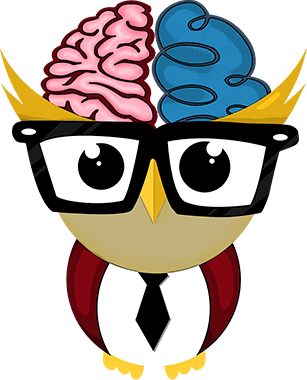Active Learning In Virtual Business Landscape
I have the chance to coordinate the activities of three virtual enterprises and their outstanding results encouraged me to share this experience with all of you who are interested in business simulations supported by eLearning platforms. One of these companies – Smart OWL (Online-Web-Leading), a virtual enterprise providing online marketing, SEO and web design services to its clients (other virtual enterprises from worldwide), achieved the best performance, reporting first prize at the category: Look – Here I am, the 7ᵗʰ International Practice Enterprise Trade Fair, which took place at Jesolo (Venice) in the period 14th – 16th of April 2015.
How to gain first prize in a virtual enterprises trade fair
In my opinion, acquiring both hard and soft skills is the key element to keep your business school students active in the learning process. When preparing to attend an international trade fair dedicated to virtual enterprises, the main challenge for the students is to become champions. In this way, the road to success passes through the heart of a business model based on the acquisition and development of Competitive, Collective and Cultural Intelligence skills.
- Competitive Intelligence.
Detecting early warning signals and developing plans in order to mitigate the business risks are the most significant outcomes of this process focused on permanent scanning of the business opportunities on the global virtual market, as well as of the competitors’ activities.
In the particular case of Smart OWL, Competitive Intelligence also reveals the practical ways to explore the trends related to web design, SEO and SEM in order to upgrade the portfolio of services offered to the virtual market of practice enterprises. - Collective Intelligence.
Being one of the most relevant sources of producing ideas for designing innovative services, Collective Intelligence creates synergies between informational resources related to the company’s field of expertise, as a result of collective learning, creativity and knowledge sharing.
Coming back to the Smart OWL case, it emerges from the collaboration of all its members in the decision making process or any significant insight, being facilitated by the company’s online community. - Cultural Intelligence.
The capacity to interact effectively with persons from other countries and implicitly, different cultural backgrounds, reflects what we consider as being Cultural Intelligence.
Smart OWL team proved its Cultural Intelligence skills in the negotiation with the representatives of practice enterprises from other countries in order to conclude transactions; two international transactions registered on EUROPEN-PEN International network (with virtual enterprises from France and Spain) before the international trade fair, as well as the numerous transactions performed at this event stand for valuable proofs of Cultural Intelligence. I also appreciated the team decision to involve an Erasmus student from Milan in the translation of Smart Owl webpage in Italian, before their attendance to the trade fair in Venice.
The overall experience in coordinating this virtual enterprise proved that active organizational learning method allowed students to acquire and develop both hard skills (web design, SEO, SEM) and soft skills (communication skills, teamwork skills, selling skills, skills in dealing with difficult personalities or unexpected situations, etc.). Finally, the eLearning platform dedicated to collaborative activities and to the registration of all the transactions was certainly the key enabler for this performance!









